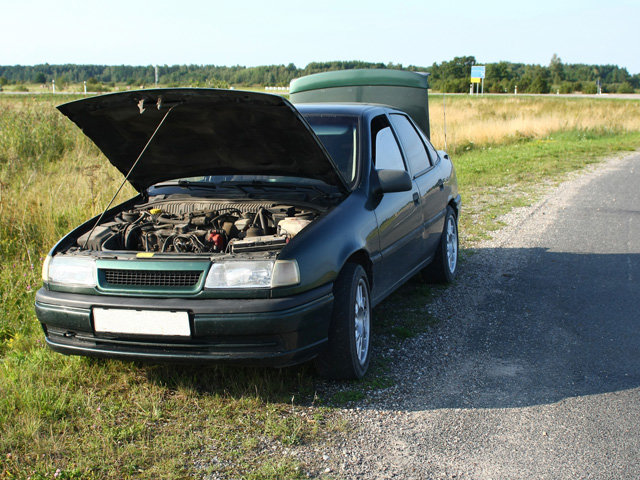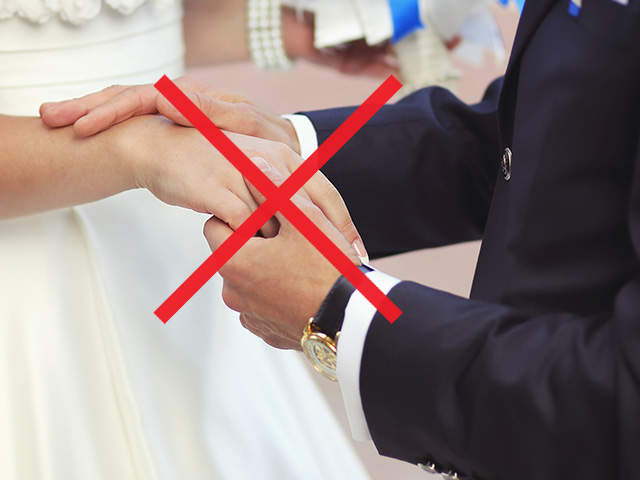Get up, look forward to... (A2)
Phrasal verbs (249)
Frázová slovesa
Na Landigo máme také lekci: Nejpoužívanější frázová slovesa – procvičování
I let the kids sleep in on the weekend. They usually get up after ten o'clock.
|
sleep in
|
přispat si |
|
get up
|
vstávat |


Frázová slovesa (phrasal verbs) jsou víceslovná spojení. Kromě slovesa se skládají z jednoho nebo dvou dalších slov:
|
I often sleep in.
|
Často si přispím. |
|
What time do you get up?
|
V kolik vstáváš? |
|
Everybody is looking forward to the party.
|
Všichni se těší na večírek. |
Rozlišujeme dva typy frázových sloves:
- Dělitelná (call off, help out, look up...):
They've called the match off.
Odvolali zápas. They've called off the match. - Nedělitelná (come across, catch up with, look forward to...):
When I travel, I often come across interesting people.
Na cestách často potkávám zajímavé lidi.
Nikoliv: ...come interesting people across.
When did you find out that Sarah was lying to you?
|
find out
|
zjistit; dozvědět se |


Poor Matthew! He's come down with the flu.
|
come down with something
|
onemocnět něčím; chytit něco |


John's helping Claire out. They'll catch up with us in a minute.
|
help somebody out
|
pomoci někomu |
|
catch up with somebody
|
dohnat někoho |


Get up, look after, look up...
Frázová slovesa se skládají ze slovesa + dalšího slovíčka, často jde o předložku nebo příslovce (after, up, out, forward, in...):
|
I'll have to look after my little sister tomorrow.
|
Zítra se budu muset postarat o svou sestřičku. |
|
Don't ask me and look it up yourself.
|
Neptej se mě a vyhledej si to sám. |
|
Connor asked me out yesterday.
|
Connor mě včera pozval na rande. |
Příklady frázových sloves s předložkou:
|
We'll check in in advance to avoid crowds.
|
Odbavíme se s předstihem, abychom se vyhnuli davům. |
|
Nobody knew what was going on.
|
Nikdo nevěděl, co se děje. |
|
James and his uncle don't get along.
|
James a jeho strýc spolu nevycházejí. |
|
I ran into an old school friend at the mall.
|
V obchodním centru jsem narazil na starého kamaráda ze školy. |
Příklady frázových sloves s příslovcem:
|
Did you write down all your ideas?
|
Zapsala sis všechny svoje nápady? |
|
The actor passed away in 2010.
|
Herec zemřel v roce 2010. |
|
Wake up, Molly!
|
Probuď se, Molly! |
|
I work out at the local gym.
|
Cvičím v místní posilovně. |












Look forward to, keep up with...
Frázová slovesa se někdy kromě slovesa skládají ze dvou dalších slovíček:
|
You're going too fast. I can't keep up with you.
|
Jdeš moc rychle. Nestačím ti. |
|
Try to cut back on red meat.
|
Snažte se omezit červené maso. |
|
Ally picked up on her roommate's bad mood and left him alone.
|
Ally si všimla, že její spolubydlící má špatnou náladu, a nechala ho na pokoji. |
|
Dad has a strong immune system. He hasn't come down with a cold in a long time.
|
Táta má silnou imunitu. Už dlouho nebyl nachlazený. |








Většinu frázových sloves lze nahradit jednoslovným slovesem se stejným nebo velmi podobným významem:
|
Did you give up smoking?
|
Přestal jsi kouřit? |
|
Did you stop smoking?
| |
|
My plane takes off at 6 pm.
|
Letadlo mi odlétá v šest. |
|
My plane departs at 6 pm.
| |
|
He'll put me up.
|
Ubytuje mě. |
|
He will accommodate me.
| |
|
They made out last night.
|
Včera večer se líbali. |
|
They kissed last night.
|
Frázová slovesa jsou často, ale ne vždy, méně formální než jednoslovná slovesa. Takže např. místo PUT UP a MAKE OUT se ve formálnějším kontextu používá ACCOMMODATE a KISS.
Stop picking on your cousin like that!
|
Stop picking on him!
|
|
Stop teasing him!
|
|
Stop harassing him!
|


Please look over this document and let me know what you think.
|
Look over this document.
|
|
Examine this document.
|
|
Review this document.
|


Have you heard Lucy and Steve broke up? She couldn't put up with his drinking.
|
They broke up. She couldn't put up with his drinking.
|
|
They ended their relationship. She couldn't tolerate his drinking.
|


Call off something, call something off...
Pokud je frázové sloveso dělitelné, znamená to, že můžeme dát předmět mezi sloveso a částici (off, up, down...). Předmět lze často dát také za částici:
|
Emily brought four sons up.
|
Emily vychovala čtyři syny. |
|
Emily brought up four sons.
|
|
|
They turned my offer down.
|
Odmítli moji nabídku. |
|
They turned down my offer.
|
Delší předměty se používají obvykle až za částicí:
|
She brought up four sons from her first marriage.
|
|
They turned down the offer I didn't think they could refuse.
|
Pokud se dělitelné frázové sloveso používá s osobním zájmenem (them, it, him...), částice je až za osobním zájmenem:
|
She brought them up.
|
|
They turned it down.
|
Nikoliv: brought up them, turned down it
Let's sort out these clothes and decide if we're going to throw away any pieces.
|
Let's sort out the clothes and throw away some pieces.
|
|
Let's sort the clothes out and throw some pieces away.
|


Detective Stokes put together a timeline of the day of the murder.
| Dlouhý předmět: |
|
He put together a timeline of the day of the murder.
|


I had an injury that held me back.
|
It held me back.
|
| It held back me. |


Make sure you take off your shoes before you enter.
|
Take off your shoes.
|
|
Take your shoes off.
|
|
Take them off.
|
| Take off them. |


I think you're doing a great job so far. Keep it up!
|
Keep it up!
|
| Keep up it! |
|
Keep the work up!
|
|
Keep up the work!
|


Come across something, take after somebody...
Pokud je frázové sloveso nedělitelné, znamená to, že mezi sloveso a částici nelze dát další slovíčko:
|
I can count on my parents.
|
Na svoje rodiče se můžu spolehnout. |
|
He needs time to get over the divorce.
|
Potřebuje čas, aby se s rozvodem vyrovnal. |
Nikoliv: count my parents on, get the divorce over
Frázové sloveso je nedělitelné i s osobním zájmenem (them, it, him...):
|
I can count on them.
|
|
He needs time to get over it.
|
Nikoliv: count them on, get it over
I'm looking for my wallet. Have you seen it?
|
I'm looking for my wallet.
|
| I'm looking my wallet for. |


Would you mind going over this pronunciation one more time and a little slower?
|
Go over this pronunciation.
|
| Go this pronunciation over. |


Jared takes after me with his fair hair and skin but he has his father's eyes.
|
He takes after me.
|
| He takes me after. |


Make up for something, do away with something...
Nedělitelná jsou obvykle frázová slovesa, která mají dvě částice:
|
The sunny autumn made up for the rainy summer.
|
Slunný podzim nám vynahradil deštivé léto. |
|
What about these old files? – It's time to do away with them.
|
Co s těmito starými složkami? – Je na čase se jich zbavit. |
|
Adam needs a new pair of jeans because he's grown out of his old ones.
|
Adam potřebuje nové džíny, protože z těch starých už vyrostl. |
|
She got back at me for ruining her favourite shirt.
|
Pomstila se mi za to, že jsem jí zničila oblíbenou košili. |
Pozor na výjimky dělitelných frázových sloves se dvěma částicemi:
|
Do you have any men that you can fix me up with?
|
Neznáš nějaké muže, s kterými bys mě mohla dát dohromady? |
|
She's pregnant so I put her crying down to hormones.
|
Je těhotná, proto její pláč přisuzuji hormonům. |
|
I know you're mad at Josh, but don't take it out on me!
|
Vím, že jsi na Joshe naštvaný, nevybíjej si to ale na mně! |
|
Are you going to let them in on our plans?
|
Řeknete jim o našich plánech? |
Christine was so nervous that she decided to back out of the marriage on the morning of her wedding.
|
She backed out of the marriage.
|
| She backed out the marriage of. |


Frázová slovesa (phrasal verbs) – nejdůležitější body a tip na závěr:
- Frázová slovesa se kromě slovesa skládají z jednoho nebo více dalších slov (get up, sleep in, look forward to...).
- Rozlišujeme frázová slovesa dělitelná (call something off, call off something...) a nedělitelná (come across something, make up for something...).
- Doporučujeme podívat se na lekci: Nejpoužívanější frázová slovesa – procvičování
